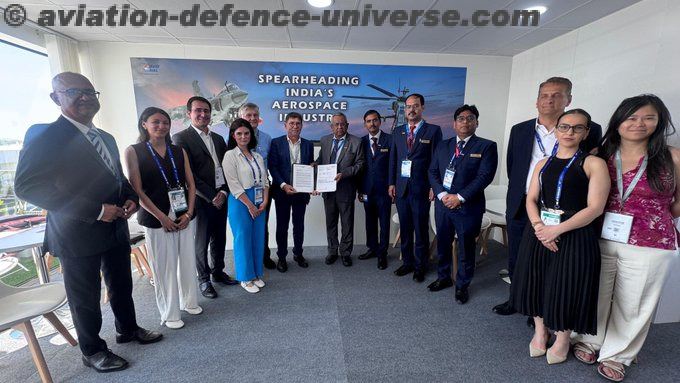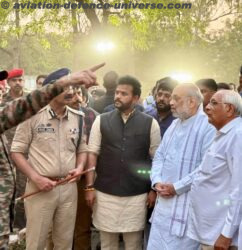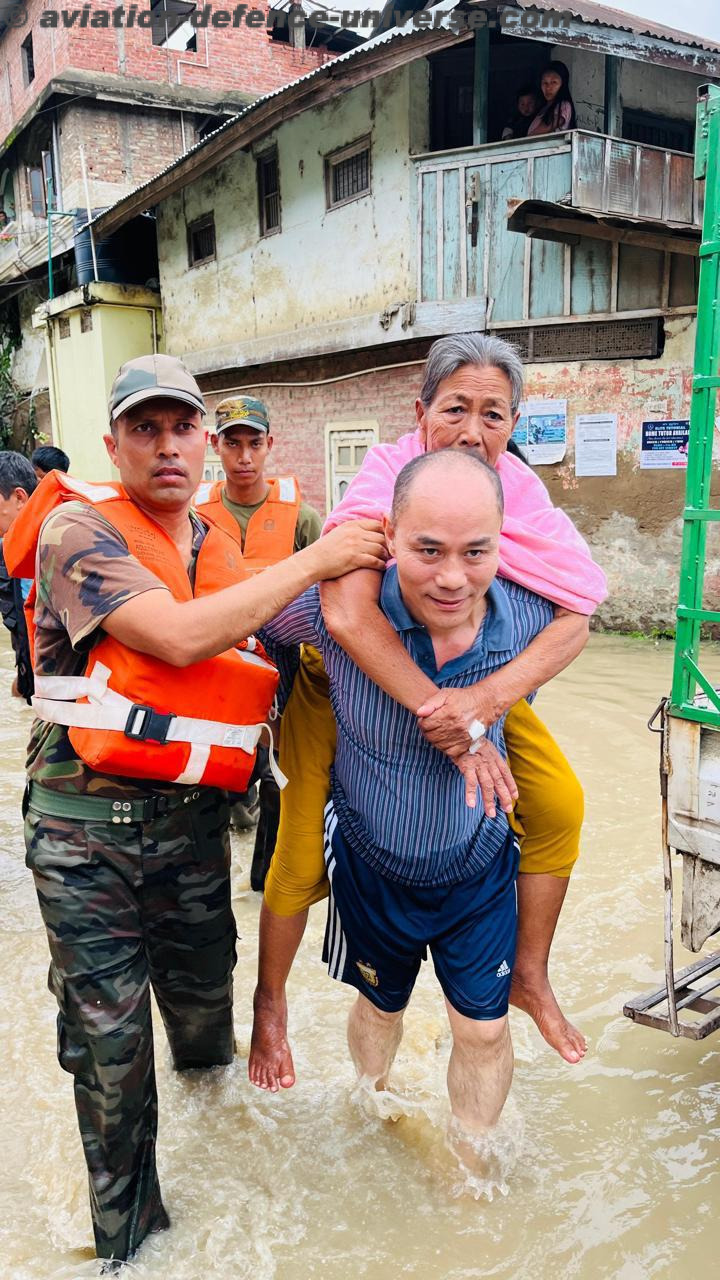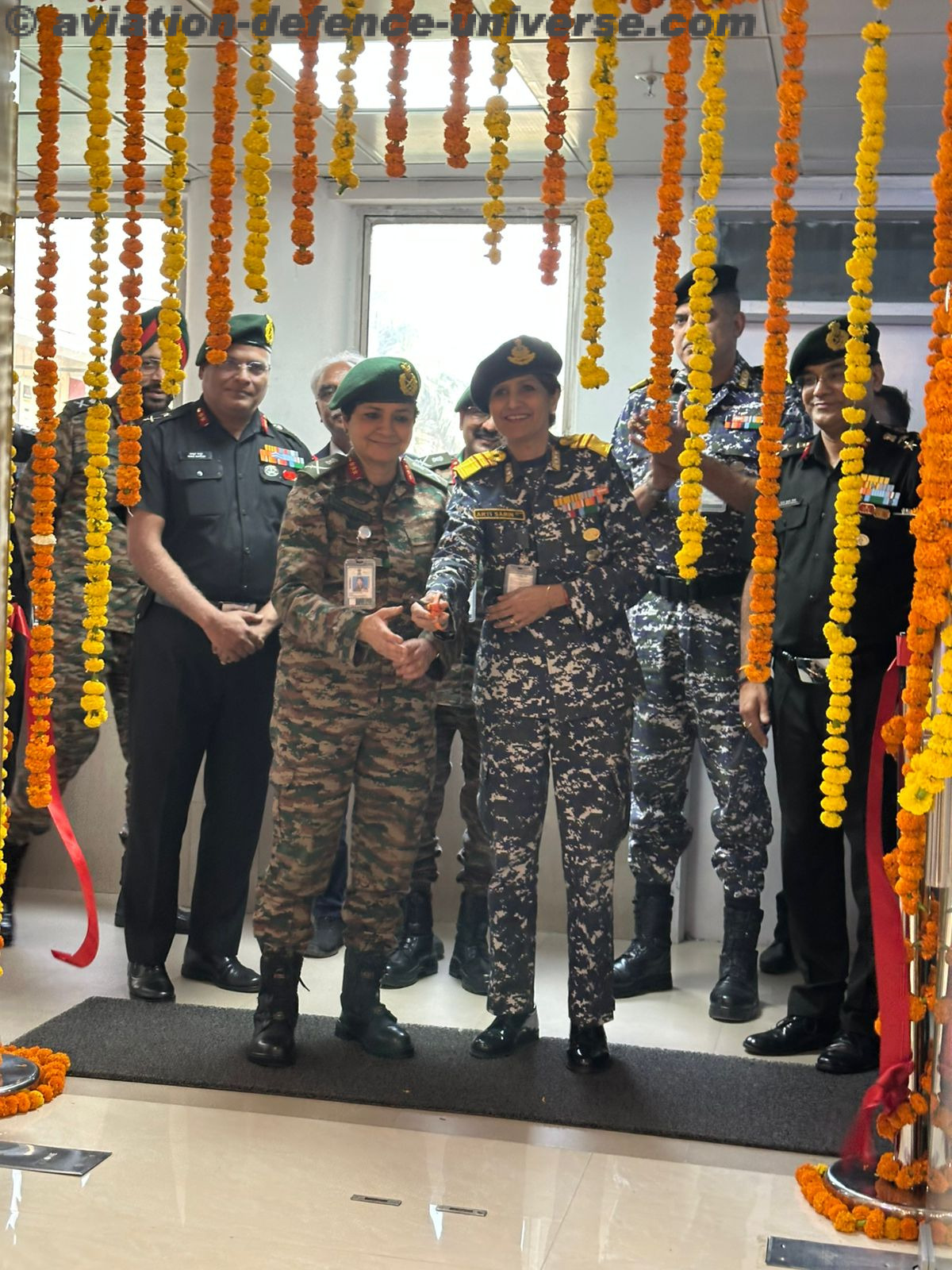- India Soars with Safe Skies & Sustainable Future
By Sangeeta Saxena
New Delhi. 07 December 2024. India enters a new era as Bhartiya Vayuyan Vidheyak 2024 becomes a reality and the nation celebrates International Civil aviation Day with elan. Recently when Ram Mohan Naidu Kijarapu, the Minister for Civil Aviation spoke at an event felicitating women pilots in the national capital he stated, “We are passing the Bharatiya Vayuyan Vidheyak, which has already been cleared in the Lok Sabha. This legislation simplifies the issuance of the RTR certificate, which was previously issued separately by the telecom department before obtaining the CPL. Now, under the new system, the DGCA will take complete control, streamlining the process and eliminating unnecessary delays.”
“Bharatiya Vayuyan Vidheyak, 2024, moved by Hon’ble Civil Aviation Minister Shri Ram Mohan Naidu Ji, has been passed in the Rajya Sabha. The bill, already passed in the Lok Sabha, replaces the Aircraft Act of 1934, positioning India as a State of Design, encouraging Aatmanirbhar Bharat in manufacturing, and advancing Ease of Doing Business in the aviation sector. The legislation expands oversight to include aircraft design, manufacturing, and maintenance alongside operations. It also introduces a two-tier appellate mechanism, and enables DGCA to conduct RTR certificate exams. With this legislation, we are taking a vital step towards modernizing the regulatory framework and advancing the sustained growth of India’s aviation sector,” said a tweet by the Ministry of Civil Aviation and India adopted a new aviation framework for safety, security and growth.
The Bharatiya Vayuyan Vidheyak (BBV) 2024, replacing the Aircraft Act, 1934, marks a significant overhaul of India’s aviation laws. Passed by the Rajya Sabha after clearance by the Lok Sabha in August 2024, the new legislation is designed to enhance the ease of doing business in the aviation sector. The outdated 1934 law, which had been amended 21 times, is now replaced with contemporary provisions to address modern challenges and opportunities in aviation. The new bill was introduced as a response to suggestions from the International Civil Aviation Organization (ICAO) to amend the outdated Aircraft Act.
The Minister confidently stated that initiatives like the UDAAN scheme have already democratized air travel. “We are also completing 8 years of UDAAN and it has been a great success story which has revolutionized the Indian aviation story. And now we must extend this inclusivity to the aviation workforce also, encouraging greater participation from women. And to achieve this I feel we have some several key areas that we need to focus. One is the breaking barriers, addressing systemic challenges that women face in aviation such as workplace biases, lack of access to mentorship and work-life balance issues. And promoting awareness, promoting STEM education and aviation careers among young girls, especially in rural areas so that the next generation knows that the sky is not the limit, it is just the beginning.” It was just a few days prior his mesmerising speech in Rajya Sabha, when he got the new Bill passed.
India’s aviation regulations have undergone a major reform with the Bharatiya Vayuyan Vidheyak (BBV) 2024, which replaced the Aircraft Act, 1934. The new law, which was approved by the Lok Sabha in August earlier this year and then passed by the Rajya Sabha, aims to make doing business in the aviation industry easier. In order to handle the potential and problems of the modern aviation industry, the antiquated 1934 law—which had undergone 21 amendments—has been updated with new measures. The International Civil Aviation Organization’s (ICAO) recommendations to update the antiquated Aircraft Act prompted the introduction of the new measure.
The Minister after getting the Bill passed, excitedly said, “ Proud moment for India as the BharatiyaVayuyanVidheyak, 2024, is passed in Rajya Sabha today! This landmark legislation replaces the Aircraft Act, 1934, aligning our aviation sector with global standards and paving the way for modernization and progress. With strengthened regulatory frameworks, ease of doing business, and a boost to domestic manufacturing, this is a transformative step for Indian aviation.”
“As we celebrate International Civil Aviation Day, Honeywell acknowledges the pivotal role civil aviation plays in fostering global connectivity and driving economic growth. This day serves to raise awareness about the social and economic benefits of international aviation. This year’s theme, ‘Safe Skies. Sustainable Future,’ aligns with our commitment to advancing technologies that enhance aviation safety, efficiency, and sustainability, ” said Guruprasad MV, Business Leader – Airlines, India Region, Honeywell India.
He added that India’s rise as the world’s third-largest domestic aviation market showcases the transformative impact of air connectivity in fueling economic growth and advancing social progress. With passenger numbers reaching 37.6 crore in FY24 and showing a robust 15% year-on-year growth, India is poised to become a global aviation leader by 2030.
“Honeywell is proud to contribute to this growth story through strategic partnerships with leading carriers like Air India. Our comprehensive aftermarket support for Auxiliary Power Units (APUs) demonstrates our dedication to high aircraft dispatch reliability, improved fleet availability, and reduced unplanned maintenance costs. The future of aviation lies in our collective ability to balance growth with sustainability. As we look to the future, we remain committed to supporting India’s aviation sector with innovative solutions that advance both operational excellence and environmental responsibility,” he added.
The Bharatiya Vayuyan Vidheyak introduces a robust framework aimed at strengthening India’s civil aviation sector by restructuring authorities, enhancing regulatory powers, and tightening penalties. The key features of the proposed legislation are as follows:
Establishment of Authorities
The bill streamlines the functioning of the civil aviation ecosystem by formally establishing three key authorities. Directorate General of Civil Aviation (DGCA) is responsible for regulatory functions and safety oversight of civil aviation activities. Bureau of Civil Aviation Security (BCAS) is entrusted with the critical task of overseeing aviation security.Aircraft Accident Investigation Bureau (AAIB) is tasked with investigating aircraft accidents to enhance safety measures. While these bodies operate independently, the central government retains overall supervision and control. The government has the authority to issue directions and review their orders, ensuring coherence and alignment with national interests.
Appeals Mechanism
The bill specifies a clear appeals structure for decisions made by the DGCA and BCAS. Appeals against their orders can be brought before the central government, which acts as the final appellate authority. No further appeals beyond this level are permitted, ensuring a swift and conclusive resolution process.
Regulation of Aircraft Design
The legislation builds upon existing provisions for regulating the manufacturing, use, operation, and trade of aircraft. A significant addition to the government’s powers is the authority to regulate the design of aircraft, a step aimed at maintaining higher standards of safety and innovation in line with international aviation norms.
The bill retains existing rule-making powers for regulating aircraft operations, licensing, certifications, and air transport services, as well as implementing the Convention on International Civil Aviation, 1944. Additionally, it expands powers to include the regulation of radio telephone operator certificates and licenses under the International Telecommunication Convention.
Offences and Penalties
The Bharatiya Vayuyan Vidheyak introduces a stringent penalty structure to address violations and enhance compliance and looks into specified offences. Violations such as carrying prohibited goods like arms or explosives on aircraft, or flying in a manner that endangers lives or property, will attract penalties of up to two years’ imprisonment, a ₹1 crore fine, or both. Offences related to environmental violations, such as slaughter or rubbish disposal near airports, could result in up to three years’ imprisonment, a ₹1 crore fine, or both. The government has been empowered to specify either civil or criminal penalties for rule violations, covering areas like aircraft activities, international conventions, accident investigations, public health, and aircraft detention. Civil penalties may go up to ₹1 crore, while criminal penalties could lead to two years’ imprisonment or a ₹1 crore fine.
The bill retains existing adjudication mechanisms, wherein the central government appoints adjudicating officers (of Deputy Secretary rank or higher) to impose penalties. Appeals can be filed before a First Appellate Officer, who holds a higher rank than the adjudicating officer. To ensure greater accountability and efficiency, the bill introduces a new appeal mechanism: decisions of the First Appellate Officer can now be challenged before a Second Appellate Officer (of a higher rank than the First Appellate Officer). This multi-tiered system ensures fair adjudication of penalties.
The Bharatiya Vayuyan Vidheyak is a landmark step toward modernizing India’s civil aviation sector. By establishing robust authorities, enhancing regulatory powers, and introducing stricter penalties, the government aims to ensure safety, security, and professionalism across the aviation industry. The bill reflects India’s commitment to aligning its civil aviation standards with global benchmarks while fostering innovation and accountability in the sector.




































































































































